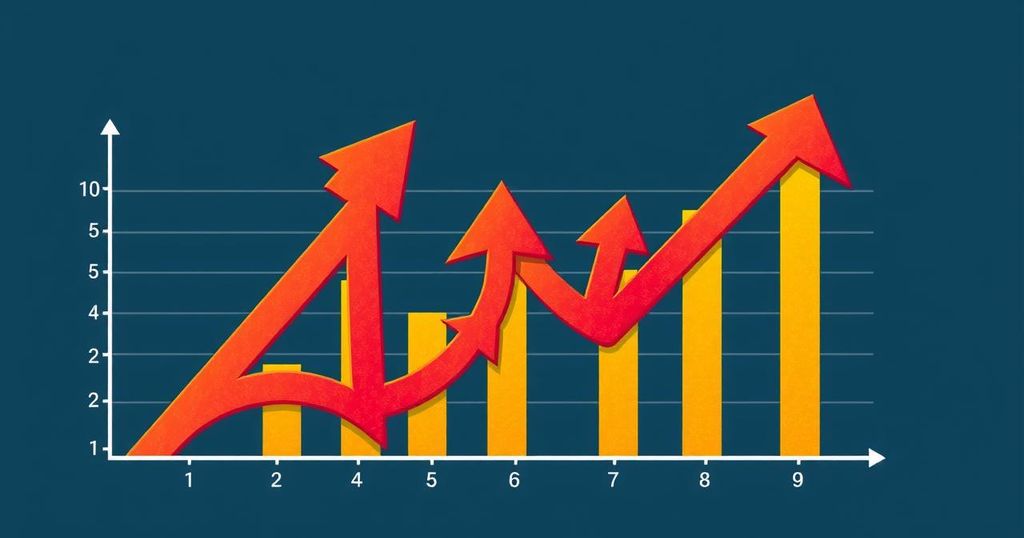In February, Brazil’s inflation reached 5.06%, exceeding the official target and prompting expected interest rate hikes from the central bank. Consumer prices rose significantly, driven by housing, education, and food costs. The governor aims to tackle ongoing inflation issues amidst growing economic challenges.
In February, Brazil’s annual inflation rate surpassed 5% for the first time in over a year, indicating that it remains significantly above the official target. Statistics from IBGE reveal that consumer prices increased by 5.06% over the last twelve months, which is an uptick from January’s 4.56% and aligns closely with the 5.05% predicted in a Reuters poll. This marks the highest annual inflation since September 2023.
The central bank of Brazil has set an inflation target at 3%, with a tolerance range of plus or minus 1.5 percentage points. In response to rising inflation, the bank has been increasing interest rates since September, aiming to return the inflation rate to its official target. It is expected that at the upcoming meeting on March 18-19, there will be a third consecutive increase of 100 basis points, taking the benchmark Selic rate to approximately 14.25%, a level not seen in over eight years.
According to William Jackson of Capital Economics, the upcoming meeting may conclude the tightening cycle, but the chances of additional minor rate hikes in the future are increasing. February also saw a significant monthly rise in consumer prices, which climbed by 1.31% from January—the highest increase since early 2022 and the largest for February since 2003. This rise was primarily due to increased housing and education costs.
The spike in prices is also influenced by fluctuations in household energy costs, which had decreased in January due to one-time credits. The absence of these credits in February caused electricity prices to rise sharply, in addition to seasonal adjustments in education expenses. Furthermore, notable increases in food and transport prices contributed to the rising inflation index.
The persistent inflation, particularly regarding food prices, has adversely affected the popularity of President Luiz Inacio Lula da Silva. His administration recently reduced food import taxes in an effort to alleviate the financial strain on consumers. Meanwhile, Andres Abadia from Pantheon Macroeconomics observes that while weakening domestic demand and tight financial conditions may limit inflation growth, the PMIs indicate a difficult first half of the year ahead.
Brazil’s inflation rate has surpassed 5%, marking a significant concern for policymakers ahead of anticipated interest rate hikes. The central bank’s aggressive monetary policy is aimed at achieving its target inflation rate of 3%. As consumer prices continue to rise, particularly in essentials like food and education, the government’s recent measures to address these increases may shape the nation’s economic landscape moving forward.
Original Source: www.tradingview.com




